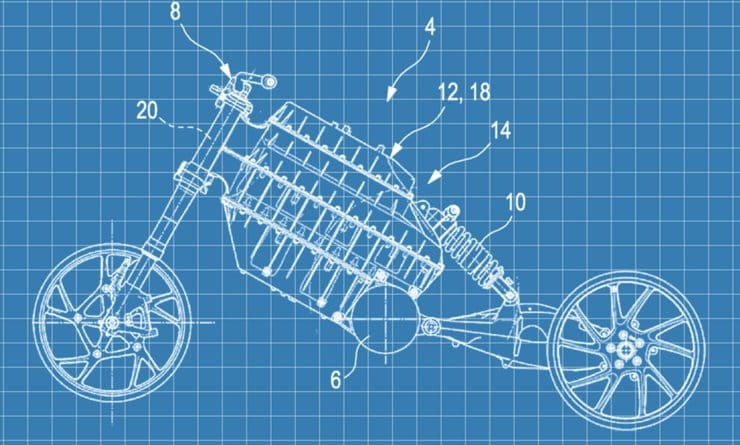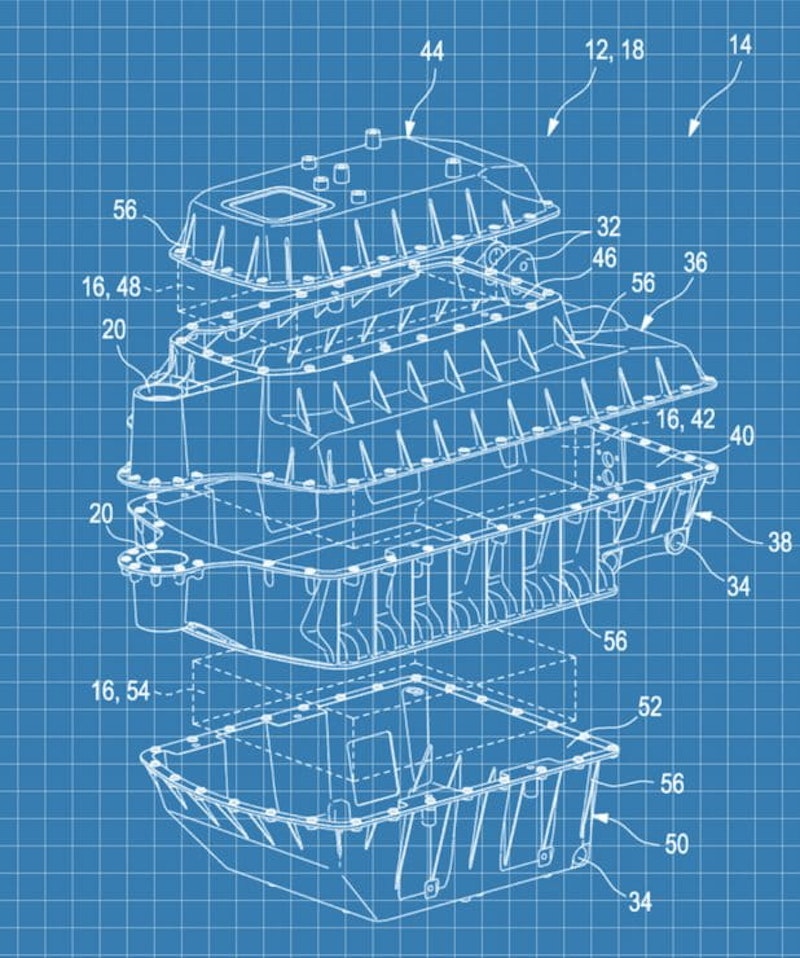BMW’s electric sports bike
By Ben Purvis
Motorcycle Journalist
20.11.2019
Although there’s been plenty of recent noise over Harley-Davidson’s LiveWire and Kawasaki’s electric bike prototype it’s worth remembering that BMW has been blazing a trail in battery-powered two-wheelers for years.
Although the firm’s C Evolution scooter is an expensive offering, with a list price of £14,035, it’s been on sale for a full five years already and remains one of the most sophisticated electric bikes on the market. Imagine if BMW took the technology it’s perfected in the C Evolution and applied it to an electric sports bike intended to rival the likes of Zero’s SR/F and Harley’s LiveWire.
That imaginary machine is closer to reality than it seems; these images from a recently-published patent application from BMW shows how the C Evolution’s ideas can be adapted into a sporty electric bike with performance on a par with the firm’s F800R.
Although BMW has already teased us with electric concept bikes like the Vision DC Roadster and Vision Next 100, they’re both more fantasy than reality at this stage. Meanwhile the company’s unfortunately-titled ‘eRR’ of 2015 was nothing more than an S1000RR with an electric motor bolted where the petrol engine would normally reside.
This patent, by contrast, has all the hallmarks of a design that’s purpose-developed for electric power while sticking to real-world technology.
The underlying idea is the same as the C Evolution; there’s no conventional frame, and instead there’s a sealed, waterproof box that carries the batteries and electronics while simultaneously forming the bike’s main structural link between the swingarm pivot and headstock. Looking at the details on these design images it’s hard not to believe that there’s a real prototype sitting somewhere in BMW’s R&D department.
The frame-cum-battery-box is a sandwich of four cast components, which the patent says are made from a combination of metals – aluminium and titanium – and composites including Kevlar. Unlike the C Evolution, which has a separate steel trellis section to form the steering head area, the design here incorporates that into the main castings. It’s also larger than the C Evolution’s frame, giving more space for bigger batteries.
As on the C Evolution, the motor doesn’t reside inside the frame, instead bolting to the back of it and acting as a structural link, with the single-sided swingarm pivoting on the motor housing itself.
That swingarm is taken directly from the BMW F800GT, as is the rear wheel, while the forks, bars and brakes seem to be borrowed from the F800R. The implication is that the bike’s performance is in roughly the same league as those machines, which both feature the same 90hp parallel twin engine, although an electric motor would likely have a higher peak output to achieve a similar overall performance level. That would put the bike into roughly the same area as Zero’s SR/F – which tops out at 110hp – and the 105hp Harley LiveWire.
This image shows how well neatly BMW’s new patent sits on top of a BMW F800, sharing the same arrangement of a direct rear shock with no rising-rate linkage and similar overall geometry.
Of course, the patent doesn’t show us the bike’s styling, but the similarity of the handlebar position suggests that this will be a naked machine – although it would be simple to change parts like that to make derivatives that slot into other segments of the market.
It’s worth noting that BMW’s progress with electric bikes has closely mirrored the firm’s strategy in the electric car market. The C Evolution acted as a starting point as a well-engineered, high-spec and slightly expensive machine with a slant towards city use, taking the focus away from out-and-out performance and range. Similarly BMW’s first all-electric car, the i3, was a sophisticated city runabout.
Now, though, BMW’s car arm is branching out with more mainstream and higher-performance electric models; the firm’s 2020 MINI Electric takes on a mass-market role while the newly-announced i4 is a 532hp electric saloon that goes on sale in 2021. If the C Evolution was BMW’s two-wheeled equivalent to the i3 (which hit the market one year before the scooter in 2013), then it makes sense that the next step is a proper electric bike aimed at a wider market, just as you see in this new patent.
Share on social media:

